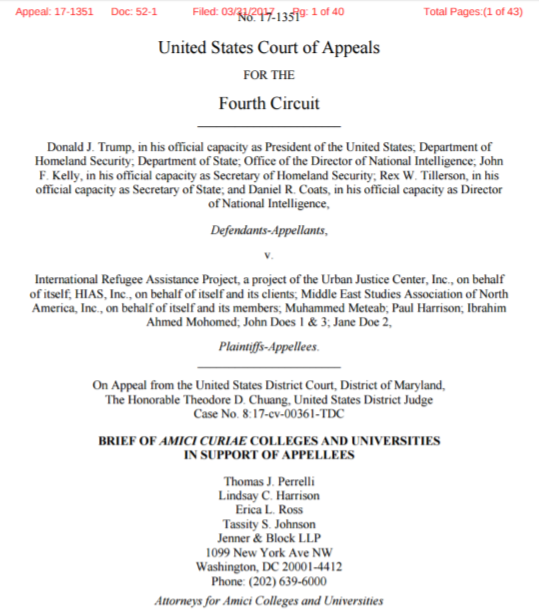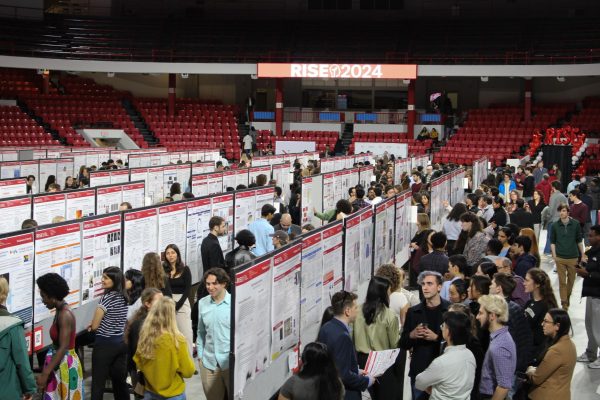Northeastern files amicus brief against Trump’s second immigration order
April 3, 2017
Northeastern University and 30 other universities filed an amicus brief Friday against President Donald J. Trump’s second travel ban, saying it interferes with their global mission and ability to draw on the talents of international students and faculty.
Trump’s second attempted ban was set into motion by a March 6 executive order, which barred citizens of six countries—Iran, Libya, Somalia, Sudan, Syria and Yemen—from entering the United States for 90 days.
“These individuals make significant contributions to their fields of study and to campus life by bringing their unique perspectives and talents to amici’s classrooms, laboratories, and performance spaces,” the brief said.
The brief was filed in the federal appeals court in the Fourth Circuit in Richmond, Virginia, one of the courts which ruled against the ban.
Other universities that signed the amicus brief include Harvard University, the Massachusetts Institute of Technology, Boston University, Brandeis University and Tufts University.
The executive order has impacted the universities’ abilities to recruit students and faculty from the affected countries, according to the brief.
The brief also said that the ban prevents the country as a whole from benefiting from the talents of international students.
“These individuals also contribute to the United States and the world more generally by making scientific discoveries, starting businesses, and creating works of literature and art that redound to the benefit of others,” the brief said.
This brief follows a similar suit Northeastern signed onto in February opposing Trump’s first travel ban, the result of a Jan. 27 executive order. The original executive order banned entry into the United States by citizens of the six countries included in the second order, plus Iraq, and would have blocked the admission of refugees for 120 days and the entry of Syrian refugees indefinitely.
In a Feb. 5 letter to the Northeastern community, Northeastern President Joseph E. Aoun said the original ban was unethical and that the university would support the 250 students and 31 staff and faculty impacted by the first travel ban.
“I find the president’s executive order restricting international travel to be antithetical to our core values and completely unacceptable,” Aoun said. “I say this as an educator and as an American who came to this country as an international student […] In the aftermath of this executive order, it has become abundantly clear that the integration of diverse people, ideas, and cultures—which universities like Northeastern make possible—is more important than ever before.”


















